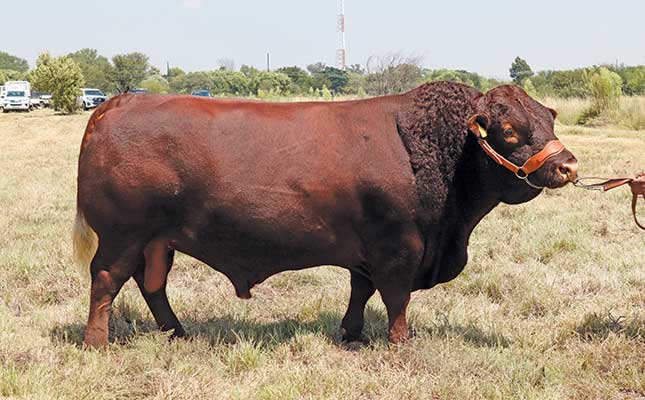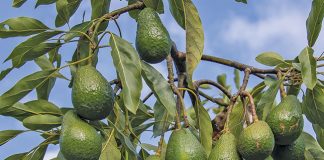
Photo: FW Archive
Farmers’ meetings are as old as farming itself. The need to share information and to discuss business with other farmers has always been there, judging from archaeological finds in Mesopotamia and ancient Egypt.
The first documented farmers’ days occurred in North America and Europe in the late 1800s, and they were brought about largely by events such as the potato famine in Europe, caused by potato blight, as well as a crisis in Minnesota in the US, where farmers had become too reliant on wheat and did not have the knowledge to grow other crops or raise livestock.
The problem in Minnesota made newspaper headlines across the country.
“FAILURE OF WHEAT CROPS. Alarming Shortage in Minnesota and the Dakotas. GRAIN OF POOREST QUALITY. Unprecedented Rains Following a Drought Cause Conditions That May Call for State Aid to Many Farmers,” ran the front page headline of The New York Times of 14 October 1900.
“Crop experts have made estimates on the wheat crop of 1900, running all the way from 100 000 000 bushels to a third more than that,” continued the report. “Newspapers of the Northwest have carefully refrained from giving much publicity to the lower estimates, and have in many cases ridiculed them.”
Relying on one crop had depleted the soil, and without crop diversification, natural threats such as locust plagues wiped out entire farms and communities. The disaster eventually led (among other things) to the development of lecture courses for farmers and, later, farmers’ days, even though these were at first poorly attended.
New challenges
Today, modern challenges such as climate change, sustainability issues, traceability and the development of technology top the information menu. Strange as it may seem, farmers are even today in danger of being left behind on the learning curve. After all, they’re busy just trying to survive and find little time for much else.
Of course, virtual platforms and social media are increasingly being used. But it will take some time before these completely replace farmers’ meetings, where there’s that little bit extra in the form of camaraderie.
In short, you simply need to get off your farm and mix with your fellow farmers every now and then. You’ll probably learn more from them than from any other source.
Where and how to meet
Here’s a breakdown of the platforms you can (and should) use to stay up to date with goings-on, even if it means re-planning some farming activities. Somehow, meeting dates always seem to clash with a farm’s busy schedule. But you should try to attend at least some of these gatherings.
The monthly or bi-monthly meeting of the local agricultural association
This is where you can hear about the latest legislation and legal requirements that affect your business; it’s where you can ask questions and complain about things such as roads, communication systems and property taxes.
You’ll also be informed of decisions taken by the annual provincial and national congresses of organised agriculture. Failing to attend these meetings can cost you dearly, as you could find yourself operating in the dark.
But in order to attend, you’ll have be a paid-up member. These fees ensure that members benefit from the negotiating and lobbying efforts of organised agriculture. Without this, every farmer would be fighting his or her own battles with the authorities. A meeting can take up the best part of an afternoon. In some countries, they are held at night, after work hours.
Study groups
Belonging to a study group puts you directly in touch with what farmers in your district are doing and how their methods might differ from yours. Members can take turns to host meetings on their farms and show the group how they operate.
You can pick up very useful tips here, and at the same time make some new friends afterwards at the braai. Study groups function best when they’re not too big.
Road shows
These meetings happen perhaps only once a year, so won’t take up too much of your time. They are arranged by commodity organisations such as the Red Meat Producers’ Organisation to inform farmers of any important new developments in their specific field.
General farmers’ days
These gatherings usually have a broader target and are of interest to a larger cross-section of farmers in a region.
Often, the organisers fly in experts to give presentations on a wide variety of subjects. Until about 20 years ago, this type of meeting was usually run by the department of agriculture’s extension service, but that doesn’t happen anymore; commercial farmers have outgrown departmental advice.
Today, they are generally run under the auspices of an agricultural association with the support of agribusinesses and commodity organisations. Set aside a full day for this.
Shows and exhibitions
Big shows and exhibitions, such as Grain SA’s annual Nampo Harvest Day in Bothaville and the annual Royal Show in Pietermaritzburg, which dates back to 1850, attract large crowds. In years gone by, almost every small town had its own agricultural show, but they have become rather scarce.
The good news is that more and more agricultural societies are trying to revive these shows or at least keep them alive. These events are great for comparing your animals with those of the exhibitors, although show animals are, of course, not always the best veld animals.
However, being present at the judging will keep you thinking about your breeding strategy.
Auctions
Stock sales are probably the best place to compare the quality, type and value of your sheep, goats or cattle in each age group with those of other farmers in your area. This will be of great help in your marketing plan.
Perhaps your animals are worth more than you thought.
In the same way, property auctions could give you an idea of the value of your farm, what buyers are looking for, and what the current interest is in farming property.











